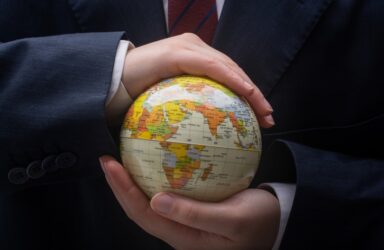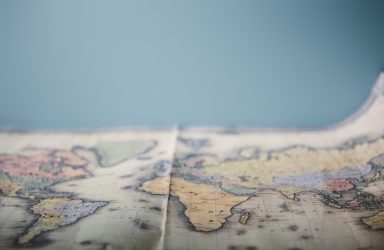Is there an Emerging Muslim Constituency for Islamic Feminists in the West?
On the basis of Euro-American Feminist and popular discourse on Muslim women in the west, Islamic Feminism seems to be somewhat of an oxymoron. Likewise for many Muslims the label Feminism is often construed as a Western project, carrying with it historical and ideological baggage.
Caspian (Virtual) Energy Geopolitics
A simple sentence could summarize almost a decade of negotiations, both political and economic, over a field that has not brought a single drop of oil to the surface: “No oil, plenty of ink”. The case of Kurmangazy, an oil field which lies about half way between the Russian and the Kazakh coasts, helps us understand the multidisciplinarity and the importance of the role of energy in foreign policy decision-making.
Prevention: Core to the Responsibility to Protect
Motivated both by analytical rigor and political expediency, ICISS sandwiched its discussion of international response to atrocities between what it described as a “responsibility to prevent” and a “responsibility to rebuild.” Once introduced, however, the logic of prevention as core to the global atrocity agenda was difficult to deny. Why wait to halt a massacre if early engagement might avert it entirely?
Turkey’s EU Membership and EU-Middle Eastern Affairs
As relations between the West and the Islamic world have significantly deteriorated in recent years and the situation in the Middle East appears more and more threatening to the EU, Turkey’s potential role as a soft power for the EU becomes increasingly clear as a bridge between East and West.
My Decade of Activism, Countering “Appearance-ism” and Fighting Islamophobia
Our biggest challenge is to be more attractive than those who tout rage as their ‘answer’ to prior rage and retribution; leading only to endless cycles of destruction. How to inspire haters to renounce hate, is our challenge. We face this hurdle within ourselves, as well, when we fall into feeling this way about the haters, or when we even fall into hating ourselves.
Algeria: The Obstacles to Democracy
The past is present in Algeria. Although the country is an authoritarian state, it technically exhibits a civilian-run government led by an independent politician. Is there a chance for democracy? Not if Algeria can return to an effective authoritarian state as it was in the 1960s and 1970s because it will then be able to appease its population with education, jobs, houses, and rising living standards.
Beyond Eurocentrism: International Development and the Success/Failure Binary
Development theory requires a shift to a self-reflexive, decolonial approach to avoid reproducing the Eurocentric biases inherent in the Success/Failure binary.
Cyber Diplomacy and the Rise of the “Global South”
The Global South remains relevant as a construct that captures the mood of the developing world on the geopolitics of technology of cyber issues.
Regional Neorealism: Rethinking Geography and Geopolitical Competition
Regional neorealism brings both offensive and defensive schools together to produce a lens for a planet in flux.
Neorealism’s Regional Blindspot: The Arctic and South China Sea
Neorealism’s greatest flaw isn’t in its core assumptions about power and security, but in its inability to recognize that the international system is not experienced in a consistent manner.







